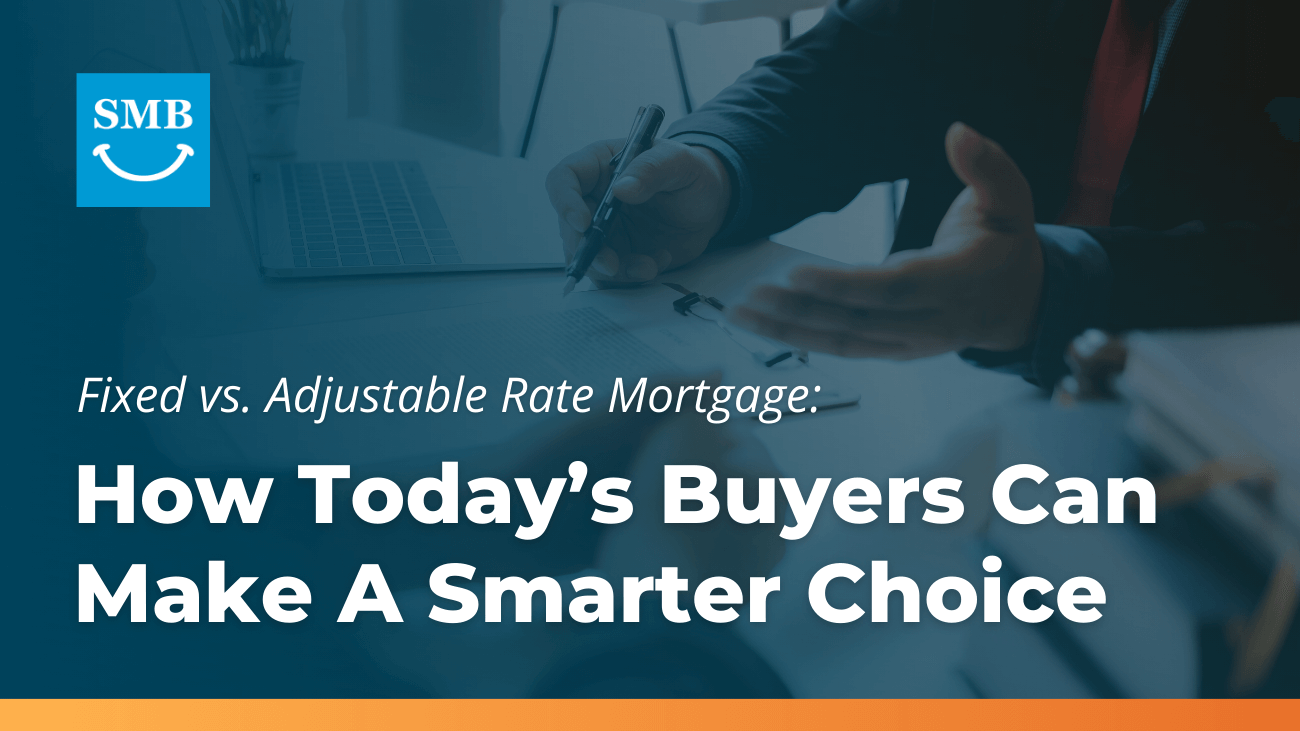How Often Can You Refinance Your Home?
.png)
When it comes to refinancing, there’s one question that gets asked more than any other...
How often can you refinance your home?
The simple answer is: as often as you’d like. There’s technically no set limit.
However, most lenders impose a waiting period between refinances, often around six months, depending on the loan type.
To get the most out of refinancing, it’s important to consider both these timing restrictions and your financial goals—which brings us to the next most popular refinancing question.
Why Refinance Your Home
Why should you consider refinancing your home?
Refinancing offers homeowners several financial benefits, making it an attractive option depending on specific circumstances and goals.
One of the primary reasons to refinance is to improve a homeowner’s financial situation, whether by lowering monthly mortgage payments, securing a better interest rate, or adjusting the loan term.
Selecting the right loan program during refinancing plays an important role in achieving these benefits, as different programs offer various terms, rates, and flexibility to suit individual needs.
With that said, refinancing must be done strategically.
There are a few key guidelines to keep in mind when considering if a mortgage refinance makes financial sense for your unique situation.
As we’ve already mentioned, there are no hard limits on how frequently you can refinance; however, it’s best to consider the timing, the costs involved, and the potential benefits before making a decision.
Properly weighing these factors will ensure that refinancing works in your favor and aligns with your long-term financial goals. This article will guide you through all of the things you should consider and the best process for refinancing your hope.
The Importance of Timing
Timing is likely the most important factor when it comes to refinancing, so we’ll begin by looking into how timing makes a difference:
Loan-Specific Waiting Periods
Different loan types have varying waiting periods for refinancing.
Most conventional loan lenders require a “seasoning period” or waiting period between refinances. This seasoning period allows lenders to ensure that the homeowner has enough time to demonstrate payment stability.
For instance, if you have an FHA loan, you need to wait at least 210 days from the closing date of your original loan before you can refinance. Similarly, when doing a VA loan refinance, there is a 210-day wait after your first mortgage payment.
These waiting periods, specific to government-backed loans, are put in place to protect lenders and borrowers alike from unnecessary refinancing that could increase financial risk.
Market Factors
While you can refinance multiple times over the life of your loan, capturing the financial benefits of refinancing can be dependent on the market.
Market conditions, such as interest rate fluctuations, and personal financial goals, such as reducing monthly mortgage payments or shortening the loan term, should drive your decision.
Monitoring interest rates and evaluating your financial situation can help you choose the best time to refinance, ensuring you maximize the benefits without incurring unnecessary costs.
Now that we understand the nuances of how often you can refinance your mortgage, it’s time to ask yourself if you should refinance your home.
Leverage Refinancing to Improve Your Financial Situation
Refinancing your mortgage is a smart way to enhance your financial situation by securing better loan terms that align with your current goals.
Your existing mortgage terms may no longer fit your current financial circumstances, whether due to higher interest rates, a loan term that no longer meets your needs, or the presence of mortgage insurance you no longer need to pay.
By refinancing, you can take advantage of lower interest rates. The result is that you’re able to reduce your monthly payments, shorten your loan, or access home equity for major expenses. This can ultimately improve your financial flexibility and long-term savings.
Here’s how refinancing your home might improve your financial situation:
Monthly Payment Reduction
Reducing monthly payments is one of the primary motivations for homeowners to refinance their mortgage.
By refinancing to a lower interest rate or extending the loan term, borrowers can significantly reduce the size of their payments, offering immediate financial relief and improving cash flow.
For many, this creates breathing room in the household budget, allowing them to allocate funds toward other financial goals such as saving for retirement, investing, or paying off other high-interest debts.
Lower Interest Rates
Another one of the most compelling reasons homeowners refinance their mortgage is to secure a lower interest rate, a move that can lead to significant long-term savings.
Even a seemingly small reduction in your interest rate can translate into thousands of dollars saved over the life of your loan. Dropping your interest rate by just 0.5% can substantially reduce your interest payments, especially when applied over a 15- or 30-year mortgage. This decrease in rate means more of your payment goes toward reducing your loan principal, allowing you to build equity faster.
Extending Loan Terms
Refinancing also allows homeowners to modify their loan terms. Extending your loan term can lower your monthly mortgage payment, making it easier to manage your budget. Keep in mind, it will increase the total interest paid over the life of the loan.
Eliminating Mortgage Insurance
If you originally bought your home with a down payment of less than 20%, you’re likely paying private mortgage insurance (PMI) or an FHA mortgage insurance premium (MIP).
Refinancing, once you’ve built 20% equity in your home, can eliminate these MIPs, potentially saving you hundreds of dollars each year by removing this added cost from your monthly mortgage payments. This is especially beneficial for homeowners with FHA loans, where MIP can last for the life of the loan unless refinanced.
Debt Consolidation by Accessing Home Equity
Refinancing can also help you consolidate high-interest debt, such as credit card balances or personal loans, into a single, lower-interest mortgage payment.
This is a way to simplify your finances, lower your overall monthly debt obligations, and help you pay down debt more efficiently.
A cash-out refinance allows you to leverage the equity in your home to access funds for major expenses, such as home improvements or debt consolidation. This can be a smart move if you need to cover large costs while maintaining a lower interest rate than other loan types, such as personal loans or credit cards.
Building Equity Faster
If you’re in a stable and prosperous financial situation, you may be wondering how you can leverage a refinance to continue to grow your wealth. This may be paying off your home more quickly and building equity faster.
Shortening your loan term means you’ll own your home outright sooner, providing long-term financial security and allowing you to redirect funds to other financial goals once the mortgage is paid off. While your payments will likely increase with a shorter term, the long-term savings and faster equity accumulation make this an appealing option for homeowners looking to maximize their investment in their property.
However, it’s important to evaluate your financial situation and ensure that higher monthly mortgage payments fit your budget before making this decision.
By refinancing your mortgage multiple times throughout the life of the loan, you can continually adjust the terms to align with your evolving financial goals and lifestyle needs, ensuring your mortgage remains an effective tool in managing your finances.

Refinancing Considerations
With all those benefits, why not refinance all the time?
As we’ve already discussed, there are some amazing benefits to refinancing that can push your financial situation in the right direction. With that said, there are also potential downsides, trade-offs and costs that overshadow those benefits.
Closing costs, interest rates, and the type of loan you choose all play a significant role in determining whether refinancing is the right move for your situation.
Loan Type
Your refinancing options will be largely influenced by the type of loan you currently have.
Each loan type, whether it’s FHA, conventional, USDA, or VA, comes with specific refinancing programs, eligibility requirements, and benefits.
FHA Loans
For instance, if you have an FHA loan, an FHA streamline refinance offers a quicker, more affordable option with less paperwork and no appraisal requirement.
This type of refinancing is designed to reduce your interest rate and monthly payments with minimal hassle, making it an attractive choice for many homeowners. However, one limitation is that MIP may still be required unless sufficient equity has been built.
Conventional Loans
For those with a conventional loan, refinancing into another conventional mortgage may offer more flexibility.
Kind of like how when you put 20% down, you don’t need PMI, if your equity equates to that amount, you can get out of your ongoing PMI amount. On top of that, you can often secure more competitive interest rates in that refinance because of the increase in equity. Conventional loans also allow for cash-out refinancing, which lets you access your home’s equity for other financial needs, such as home improvements or debt consolidation.
USDA Loans
For homeowners in eligible rural areas, USDA loans offer a specific refinance option called the USDA streamline-assist refinance.
This program is designed to lower monthly payments without requiring a new appraisal or credit check. A key benefit is that it allows borrowers to reduce interest rates and payments, even if they have little equity in their homes.
However, USDA loans have restrictions, such as being limited to specific geographic areas and income qualifications, which may make refinancing into a conventional loan a more favorable option for some homeowners.
VA Loans
Veterans and active-duty military members with a VA loan can take advantage of the Interest Rate Reduction Refinance Loan (IRRRL), also known as a VA streamline refinance.
This program is designed to lower interest rates and monthly payments with minimal paperwork and no appraisal requirement.
Closing Costs
No matter what kind of loan you choose, there is one constant that you’ll need to factor into your refinancing plan: closing costs.
These fees can include appraisal fees, application fees, and title insurance, among other costs. Be sure to calculate whether the savings from refinancing outweigh the closing costs.
.png)
Lost Equity
Each time you refinance, especially with a cash-out refinance, you’re essentially resetting the clock on your loan and potentially reducing your home’s equity.
This could limit your financial flexibility in the future, particularly if you need to sell your home or take out another loan.
Prepayment Penalties
Some mortgage loans include prepayment penalties, which can be triggered if you refinance too soon.
While many modern loans don’t have these penalties, it’s still something to watch for in your loan terms. A prepayment penalty can add unexpected costs to your refinance, reducing your overall savings.
Now that we’ve covered the pros and cons of refinancing, the biggest takeaway that most of these factors all point back to is timing. Refinancing too often, or when market conditions aren’t favorable, can negate the financial benefits. It's important to assess whether the potential savings from lower interest rates or new loan terms will outweigh the costs.
Consulting with a mortgage broker or financial advisor can help you make an informed decision and ensure refinancing aligns with your broader financial goals.
When Should You Refinance Again?
Deciding when to refinance again should be carefully evaluated based on both your financial position and the broader market conditions.
.png)
Once again, we come back to the importance of timing. It is crucial because refinancing too soon after a previous refinance or during unfavorable market conditions can reduce or even negate the financial benefits.
Here are a few ways to decide if another refinance is the right decision:
Ready to Improve Financial Position
Refinancing can make sense if your financial situation has improved since your last loan. For instance, if your credit score has increased or if interest rates have dropped significantly, refinancing may help you secure better terms and lower your payments.
Break-Even Point
Before refinancing, it’s important to calculate your break-even point. This is the point at which your savings from refinancing offset the costs. This calculation will help you determine whether refinancing is worth it based on your long-term financial goals.
Market Considerations
Keep a close eye on interest rates and home values. Refinancing when rates are low and home values are high can help you get the best possible terms. Market timing plays a critical role in determining how much you’ll save through refinancing.
How a Mortgage Broker Can Help
When refinancing, there is a lot to consider. But you don’t have to do it alone. Reaching out to an expert is often the smartest move you can make.
Working with a mortgage broker can simplify the refinancing process and ensure you make the best financial decisions.
Expert Guidance
Seattle’s Mortgage Broker provides personalized advice based on years of experience and a deep understanding of the local market. We help homeowners evaluate whether refinancing is the right move and guide them through the process to ensure success.
Customized Solutions
Whether your goal is to lower your monthly mortgage payments, pay off your loan faster, or access home equity, Seattle’s Mortgage Broker tailors refinancing options to your unique financial needs, helping you achieve your goals while minimizing costs.
Streamlined Process
Refinancing can be complex, but a mortgage broker handles all the paperwork, negotiations, and lender communications, making the process as smooth and stress-free as possible.
Maximizing Savings
By leveraging our network of lenders, Seattle’s Mortgage Broker can secure the best possible rates and terms, helping you save more in the long run and avoid costly mistakes.
Whether you’re looking to lower your interest rate, reduce your monthly payments, or access your home’s equity, working with an expert mortgage broker can help you make the most of your financial future.
With so many things to consider, Seattle’s Mortgage Broker makes it even easier to refinance with Step Down Refinancing! Not only will you take some of the closing costs out of the equation, you’ll have the expert guidance you need to refinance the right way.
Get the refinancing guidance you need with Seattle's Mortgage Broker.


Should You Use a Mortgage Broker? Everything You Need to Know First

How to Find the Right Neighborhoods in Seattle for Your Budget and Lifestyle

Warrantable vs. Non-Warrantable Condos: What Every Buyer Needs to Know Before Financing

How Much Does It Cost to Refinance a Mortgage in Seattle? A Homeowner’s Guide
.png)
How Often Can You Refinance Your Home?
.png)
The Complete Guide to For Sale By Owner (FSBO) in Seattle

10 Questions Every Seattle First-Time Home Buyer Asks

Ultimate Seattle Mortgage Loan Documents Checklist

Your Complete Guide to Seattle Property Tax

Why You Should Work with a Mortgage Broker

Where to Find the Best Local Mortgage Broker

Where Are The Best Places To Live In Seattle?

What’s the Best Way to Save Money for a House in Seattle?

When is the Best Time to Refinance a Home?

What is the Jumbo Loan Limit in Seattle 2020?

What You Need to Buy a House in Seattle

What Is a Jumbo Loan and will you need one when moving to Seattle?

What is the Jumbo Loan Limit in Seattle?

What Is A Non-Warrantable Condo?

What is the Best Down Payment Amount on a House in Seattle?

What is PMI Mortgage Insurance? And Why It Is Not As Bad As You Think

What Is A Cash-Out Refinance?

What do Home Loan Underwriters Look For?

What Down Payment Do I Need for a House?

What Are The Costs of Buying a Home?

What Are The Best Neighborhoods In Seattle For Families?

FAQ: What Are the VA Home Loan Requirements?

WEST SEATTLE JUNCTION ; Seattle Neighborhood Tour

What are RSUs and How to Spend Them

Understanding Mortgage Down Payments

Top 5 Seattle Suburbs to Buy In 2021

Understanding Down Payments in Seattle

The Ultimate Mortgage Document Checklist

Top 10 Mortgage Questions You Should Ask Your Broker

The Worst First-Time Homebuyer Mistakes

The Top 5 Seattle Suburbs for 2020

The Best Seattle Neighborhoods in 2020

How to Find the Best Mortgage Refinance Companies in Seattle

The Best Seattle Neighborhoods for Families

The Best Neighborhoods in Seattle to Buy a Home

The 7 Best Seattle Suburbs for Families

Seattle Neighborhood Guide: The Top 10 Most Affordable Places To Live In Seattle

SOUTH LAKE UNION ; Seattle Neighborhood Tour

Seattle Summer Housing Market Guide 2020

Seattle Housing Market Update 2020

Seattle Housing Market Hacks

Save Money When Buying a House in Seattle

Save Money on Your Mortgage Refinance

Moving to Seattle with a Family? Here's the BEST Suburbs For You!

Refinancing To Reduce Your Bills and Increase Available Cash

Neighborhoods in Seattle to Buy a Home 2020

Real Estate Trends in Seattle

Mortgage Down Payments in Seattle

MAGNOLIA ; Seattle Neighborhood Tour

Mistakes to Avoid with Cash-Out Refinance

How to Refinance Your Home in 9 Steps

Jumbo Loan Limit vs Conforming Loan Limit in Seattle for 2021

KIRKLAND ; Seattle Neighborhood Tour

Jumbo Loan Limit in Seattle for 2021

ISSAQUAH ; Seattle Neighborhood Tour

Is My Credit Score Good Enough to Buy a House?

How to Buy a House; Home Buying 101

How to Lower Your Monthly Mortgage Payment

How to Get the Best Rate for Your Home Loan

How to Buy a House for Less

How Much Home Can I Buy in Seattle?

How Much Do You Really Need for a Down Payment in Seattle?

How Much Home Can I Afford?

Home Price Forecast for Seattle 2020

How Hot is the Seattle Real Estate Market?

How Hot is the Seattle Real Estate Market in 2022?

Home Inspection Questions You Need to Ask

Do You Need a Realtor to Buy a House in Seattle?

FHA vs. Conventional Loan: Which Mortgage Is Right for You?

Find the Best Mortgage Lender for Your Home Loan

Federal Housing Administration Loans 2021

Down Payment Requirements in Seattle

FACTORIA and SOMERSET ; Bellevue Neighborhood Tour

Everything you Need to Know About Seattle Jumbo Mortgages

Everything You Need to Know About VA Loans

Advice To A First Time Home Buyer: Down Payment Assistance Programs Exist for Millennials

CROSSROADS ; Bellevue Neighborhood Tour

Down Payment 101: How Much Money Do I Need to Buy a House?

COVID-19 Mortgage Help for Homeowners

Comparing ARM vs. Fixed Rate Mortgage

Can I Afford To Buy A Home In Seattle?

Choosing the Best Lenders for Home Loans

How to Use Restricted Stock Units to Buy a Home in Seattle

ARM v. Fixed Mortgage: Which is Right For You?

Ballard or Queen Anne? The Best Neighborhoods of Seattle to Buy a House

Avoiding the Worst Seattle Mortgage Lenders

Are You Buying a House in Seattle? Here’s the Ultimate Survival Guide

Fixed vs. Adjustable Rate Mortgage: How Today’s Buyers Can Make A Smarter Choice

ALKI BEACH ;; A Seattle Neighborhood Tour

A Complete Guide to Refinancing Your Home Loan

8 Ways to Lower Your Mortgage Payment

8 Mistakes to AVOID When Mortgage Loan Refinancing

7 Seattle Suburbs for Families


















